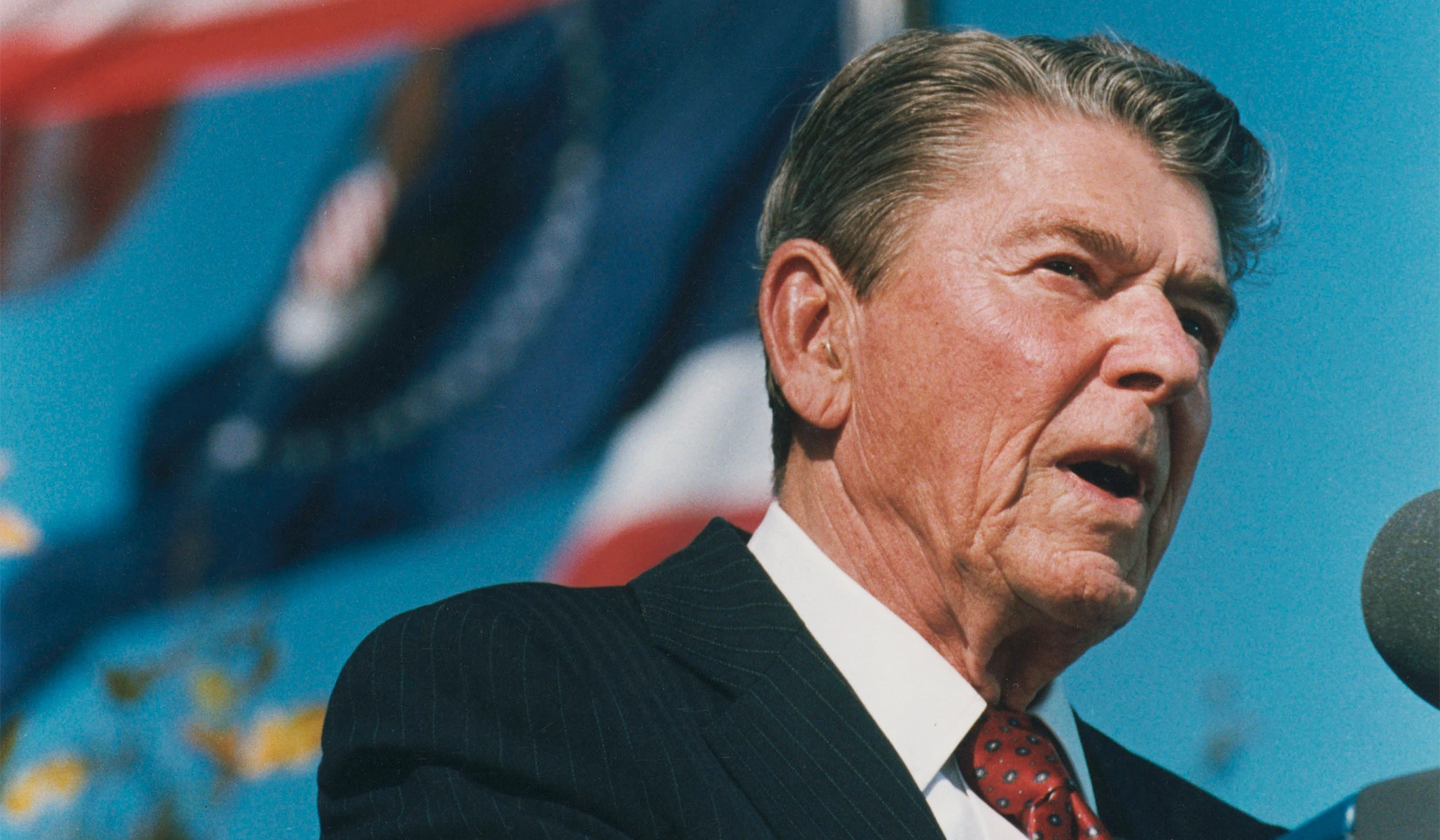Ronald Reagan’s inaugural message as governor of California on January 5, 1967, addressed recurring problems throughout history. He discussed crime, welfare reform, education, radicalism on campus, lower taxes, and fiscal discipline. Reagan’s rhetorical framework emphasized that these issues were aspects of a general relationship between government and the people. He believed that the American government was not omnipotent and that the law should reflect the consensus of self-governed citizens. Reagan evoked a “Creative Society” where “government will lead but not rule, listen but not lecture.”
Reagan’s principles continued to inform his politics and rhetoric when he became president. He distanced himself from extreme libertarianism and emphasized that government can and must provide opportunity, foster productivity, and remove obstacles to human flourishing. Reagan believed that progress was connected to a public commitment to human freedom and a new supply-side economics aimed at increased productivity and abundance.
A supply-side revival is not the place for the progressive Left, but the conservative Right must map out the topography of the Creative Society in the 21st century. Spending restraint and monetary sanity, deregulation, streamlined permitting processes, and promoting nuclear power and enhancements to the electric grid are some of the ways to achieve this.
The winning Republican or conservative candidate must situate these policy particulars in a larger concept of the American future. The candidate must refine Reagan’s vision to meet this moment and drive home the idea that traditional social practices are the bedrock of prosperity and peace. Reagan’s dream of a Creative Society is not a retreat into the past but updating the dream that gave birth to this nation and making it practical for the 21st century.

